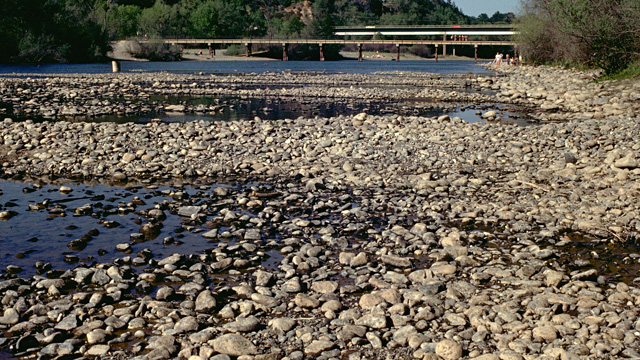
Governor Jerry Brown is calling for water conservation as the primary strategy against California’s record drought, but his emergency declaration on Friday also opened the door for weakening some environmental rules.
State regulators can now relax water quality standards, allowing rivers and estuaries to be saltier and warmer, as they try to manage the state’s limited supplies.
The change is making some fishing and environmental groups wary, who fear that wildlife concerns will come second to the needs of parched cities and farms.
“There will be some tough choices coming down the road on how we balance protections for the environment and water supply,” said Doug Obegi of the Natural Resources Defense Council. “There’s just no getting around it in critically dry years like this one.”
The change focuses on water quality control plans, like the one for the Sacramento-San Joaquin Delta, the hub of the state’s water supply. The plan assures that a minimum amount of water is released from dams, so freshwater is provided for downstream water users and wildlife, including salmon.
“This year, everybody is going to feel some pain”
“They’re minimum standards for protection of the estuary and they really are minimums,” said Obegi.
Under the drought declaration, regulators can “consider modifying requirements for reservoir releases or diversion limitations.” Dam operators may ask to reduce releases to keep water in the reservoirs, so it can be used later in the year. That could violate water quality standards in rivers below the dams.
“It’s critical that we really maintain those minimal protections so that we don’t further exacerbate the precarious nature of our native fisheries,” says Obegi.
“The rivers are going to be super warm and super low,” says John McManus of the Golden Gate Salmon Association. “Salmon are going need to help because we’ve got tens of thousands of jobs hanging in the balance that depend on California salmon runs.” Several fishing groups are concerned that young salmon released from hatcheries won’t survive the dry conditions.
More at KQED.org >>>
